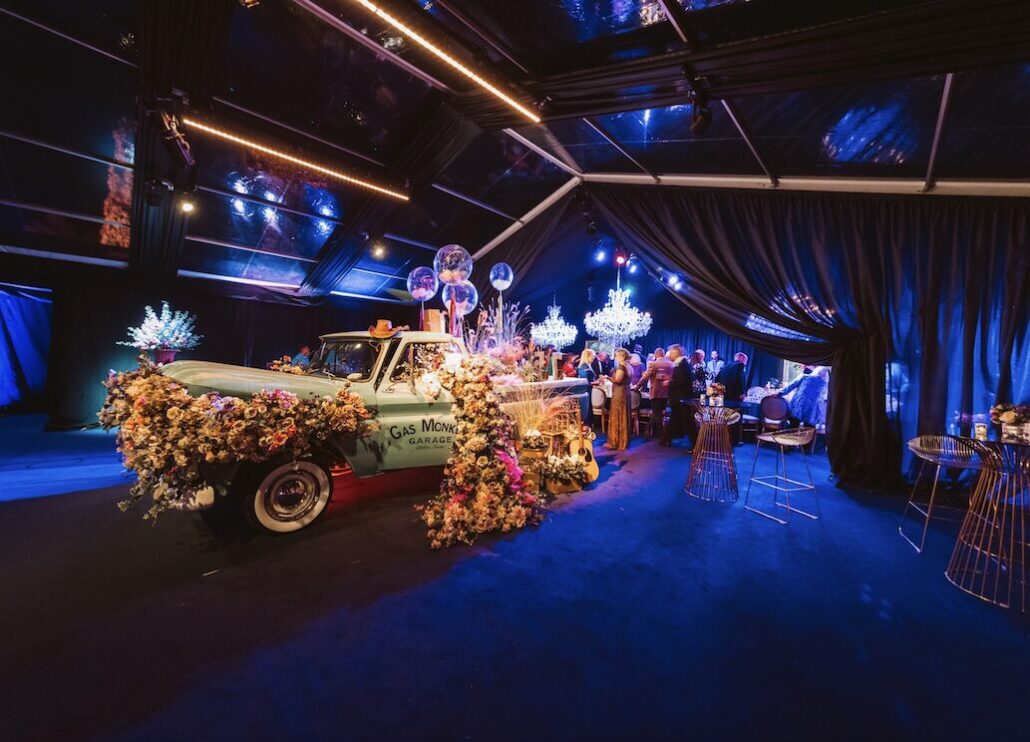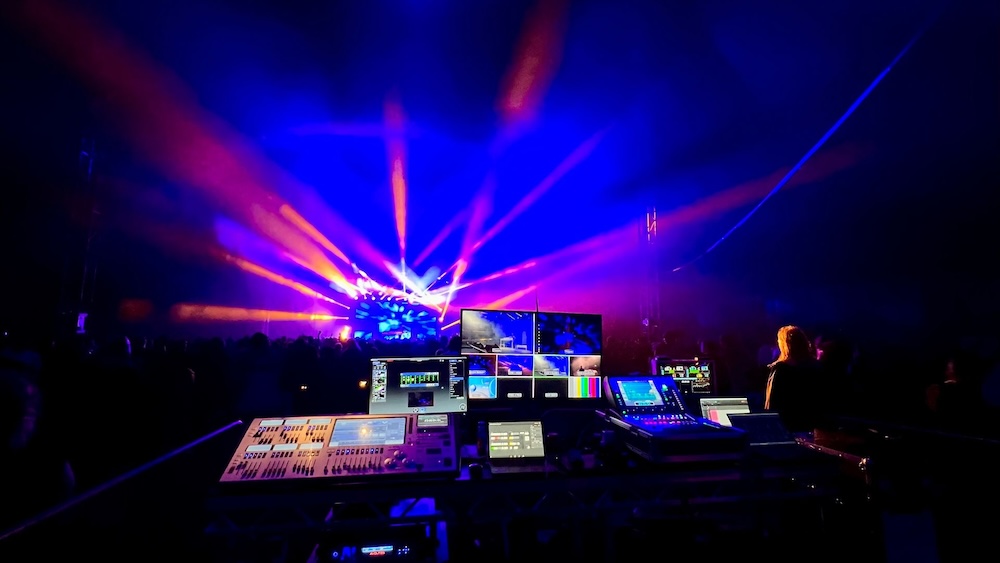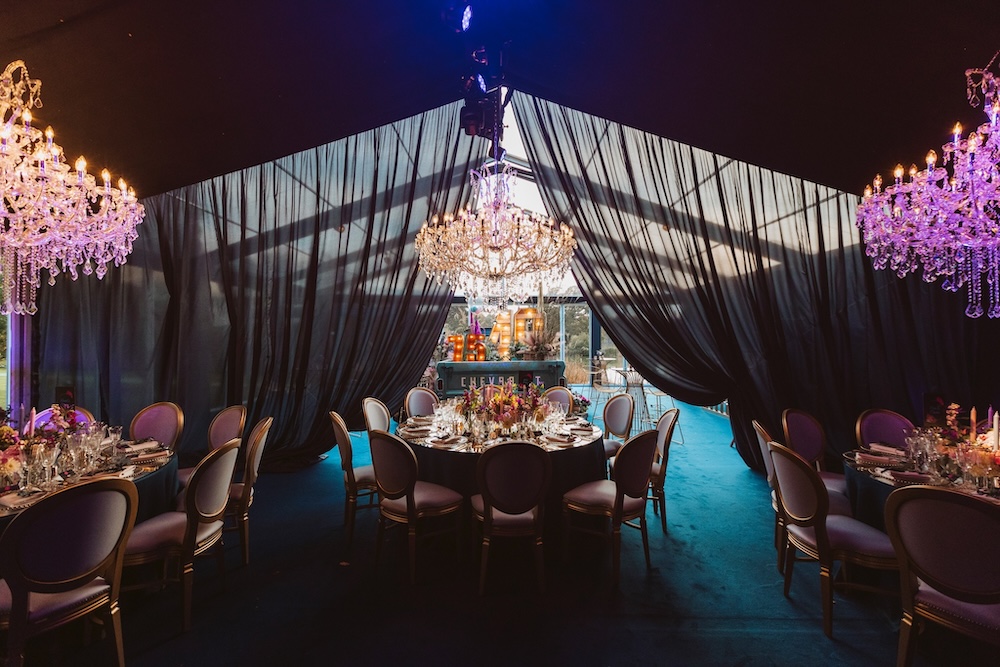5 tips for sourcing the perfect event production company
So you’re planning an event? You may have an idea of the theme, you may have the ideal location, have set the date and you may even have some acts confirmed.
It’s all starting to come together, but then you think “How am I actually going to pull the production off?”
You have two options - to get hands-on with the logistics, and become your own event production director, or find a partner that can manage the production side while you work on the event experience; dealing with acts, sponsors, clients, guests, PR and promotional activities.
You may have natural strengths in one or other of these areas, and we always advise you to play to them, as it’s unlikely that you’ll manage to take everything on yourself.
When it comes to event production, experience is invaluable. Understanding what’s involved and the timescales required to ensure you’ll be ready for the live date, knowing what equipment and resources you’ll need and how to get them onto site, how to cater for your guests with food and drink, and keeping on top of health and safety, licensing and land owners.
There’s a lot to think of when it comes to running an event, that’s for sure. That’s why so many organisers decide to better partner with a professional event production company, who can take the pressure off the logistical aspects and ensure that the event is a success. You may decide that this approach is right for you.
But before you start looking for an event production company to partner up with, let’s cover what one actually does.
What does an event production company do?
Production is the art of making or manufacturing from components or raw ingredients.
An event production company will take your vision and turn it into a reality from a technical and logistical perspective. They will work with your existing assets (location, event schedule, dates and time, expected number of attendees) and build out from there. It’s a complex task, which involves managing, co-ordinating and delivering the following elements successfully:
- Event Staging and structures required e.g. seating gallantries, video walls, control towers,
- Lighting
- Sound
- Power
- Technical control solutions and automation
- Connectivity
- Pyrotechnics
- Creative design of your event stages, lighting and sound
- Installation, support and de-rig
- Event crew
An event production company plays a central role in your event, so it’s important to have a close relationship with your partner of choice.
Here are 5 tips for sourcing the perfect event production company:
Tip 1: Seek recommendations from your network
Use your network of contacts to help you. Do you know other event organizers? Which production companies do they work with?
Do you have a local business network that can offer up any recommendations? Can your LinkedIn network help you with recommendations?
If you’re running an outdoor event on a greenfield site then you may want to speak to the land owners to see whether other events have been held on their land and, if so, try and get contact details for other event organizers to chat to.
If previous event production companies know the event space then this is a great starting point. They will have a good grasp of the logistical challenges of the venue, have been through the supply chain process and understand the possibilities at that particular site.
A previous event production company should also have a good supplier base at their fingertips, that has been tried and tested. Their pricing should also be accurate, giving you a good benchmark as to what it will cost you to take on an event production company.
Tip 2: Get to know potential suppliers (and really get to know them)
Your event production company is going to be critical to your event’s success, so it’s important to ensure that their capabilities line up with your requirements.
Visit potential suppliers, view their warehouses, and make sure that they have plenty of technical equipment for hire, allowing for backup equipment just in case. You don’t want a supplier to be competing for events with their equipment, and it’s good to make sure that it’s all stored correctly, tested and ready to go. An efficient operation will deliver efficient installations!
Meet the team and talk to them about their experience in the industry, ask them what they’ve worked on. It’ll give you a good insight into the quality of the team behind the company, who will be the ones on site making the day-to-day stuff happen.
Find out how often equipment is serviced and maintained, what importance they put on quality aspects of their service, and how they reinforce this (training, certification, replacing stock etc).
And it goes without saying that you should understand the full range of services offered by a production company. Do they focus on the technical production (think stages, lighting, sound, video, power) or do they also offer other event services like security, WiFi, food and drink concessions, parking and traffic management?
Some prefer to work with a few specialist companies that they can direct, whereas you may want a provider that can manage every aspect of your event for you. This will also depend on your budget.
By really getting under the skin of a company you’ll be able to make a more informed choice as to who is the right partner for you.
Tip 3: Ask for creative ideas
Prepare a brief for the event, outlining the objectives, scale, potential layout, technical production requirements etc. Send it to your shortlisted event production company and arrange a meeting to discuss the brief with them.
The best production companies should have questions, and be able to come up with new ideas for you. These ideas could be around the type of event staging that would work best for your space and audience size to ensure that everyone can see your acts perform, or it could be ideas around sound engineering and how to meet noise-dampening requirements set by local councils. Or it could be creative solutions to create impact and memories that leave a lasting impression.
Tip 4: Check certification and documentation
Health and safety is a must for event organizers. And what better place to start than with your event production partner?
Ask what certifications they have, for example, all electrical installers should be NICEIC certified. Do they carry out PAT tests on their equipment? And can they show you the certification?
All reputable companies should be able to offer Public Liability insurance, Risk Assessments and possibly other documentation. If you’re unsure, ask them what they have and compare that between the different event production companies you assess.
Tip 5: Speak to customers
The best testament to an event producer’s capability is their customers. These are the only people who have genuine experiences of a company’s services.
But before you speak to reference customers, make sure you go through steps 1-4 and gather the intelligence. This will highlight key areas you want to discuss with their customers. It may be around the success of their creative ideas, or around their health and safety, success of noise reduction techniques.
Once you know what details you want to double, and maybe triple check, this is when to take it out to a sample of customers to get genuine insight.
Conclusion
It can be a daunting process when you choose your first event production company, but follow these steps and it will help you to choose the perfect event production company, one that you can forge a long term partnership with.
If you’d like any advice around technical event production please contact our friendly team who can help you.
Author
Joe Morris is Director of Henley Theatre Services and runs the technical equipment hire and events side of the business, designing and creating some of the largest outdoor productions across the UK.




